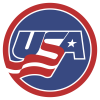10 Steps to a Great Hockey Resume - College Hockey, Inc
10 Steps to a Great Hockey Resume
Creating a simple hockey resume can help get the attention of college coaches.
First impressions are important, in hockey as in life.
For many young players interested in playing college hockey, your first impression won’t take place during a game. You’ll need to take the initiative and introduce yourself.
That introduction can take many forms, but the best is likely a “hockey resume” that is either e-mailed or mailed to the coach. College Hockey, Inc. recommends that prospective players do their research, identify 6-10 programs that interest you, and reach out to those coaches.
Here are 10 steps to creating an effective hockey resume:
1 – Highlight your vital information
Make sure the information that would be most important to a coach is mentioned first: Name, Address, E-Mail, Phone Numbers, Height, Weight, Date of Birth, Position and Left/Right Handed.
2 – Include your academic background
Academic performance can be a big factor in NCAA recruitment, so be up front about your ability. Include the name of your school, your grade/graduation year, your average and SAT/ACT scores (if you’ve taken them). If you have attended more than one high school, include previous ones as well.
3 – Spotlight your recent teams
Include the name of the team and the league where you currently play. Be sure to note your sweater number. List your coach, along with his contact information (e-mail, phone number).
List the same information for each team you played on in the past few years as well.
4 – Connect to the web
If you plan to email your resume, you can include links to your team’s web site, upcoming schedule (where coaches can see you play) and any media coverage you may have received. If you have video highlights online you can link to them as well, although it’s not necessary.
5 – Highlight your numbers
Stats don’t tell the whole story about a player but coaches will be eager to see them. List the teams you played for in each of the past few seasons along with your GP, G, A, P and PIM. Be sure they are accurate and resist the temptation to embellish them – a quick internet search will reveal any inconsistencies.
6 – List honors and achievements
Highlight any all-star selections or awards you have received. Also note any selections in junior drafts (USHL, CHL, etc.) or participation in select tournaments or events (including College Hockey, Inc. summits).
If you have honors or achievements outside of hockey you should list them here as well (honor roll, recognition in other sports, etc.).
7 – Include some personal information
It’s important to include your parents’ names. If they or a sibling played college hockey you may want to mention it as well.
8 – Highlight hockey references
List two or three coaches or others who could speak to your hockey ability. Include your relationship to them and their contact information (phone, e-mail).
9 – Don’t go overboard
Keep your resume to – at most – two pages. With everything you include, consider this: will it help a coach get a better understanding of me as a player and/or a person. Along those lines, photos may look nice, but don’t add to a coach’s understanding of what you offer as a prospective player. They aren’t necessary.
10 – Proofread!
A typo in a hockey resume is like a turnover in front of your own net – not what any coach wants to see. Take the time to review your work and have someone else look it over as well.
Follow those 10 steps and you’ll be in great position to make a good first impression on a college coach – often the first step toward a spot on a Division I team.
The information provided herein by Kyle Lawson, Director of Education and Recruitment, College Hockey, Inc. – https://collegehockeyinc.com/













